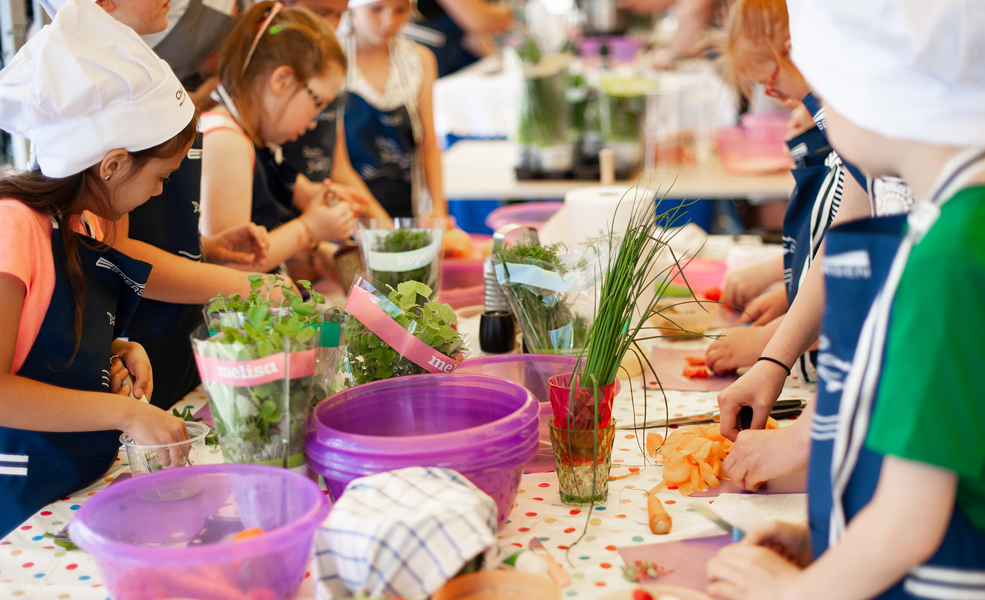Healthy eating habits should be established at an early age since they are growing rapidly and it is essential for children to have food literacy. The five best strategies to support healthy eating habits are having regular family meals, serving variety of healthy food and snacks, being a role model by eating healthy, avoiding battles over food, and involving children in the process.
Have regular family meals
The first strategy is to have regular family meals. Having a schedule where children can expect is a great start. They get their body and mind ready for the delicious food. And when adults or others are with them for the meal, they are more likely to eat healthy food such as vegetables, grains and other nutritious food items. It is a great social time for children and parents to catch up and create a warm environment during meal time. Families can also invite child’s friends or other family members to have more fun during the meal time.
Have different kinds of healthy food ready
The second strategy is to have different kinds of healthy food and snacks ready. Having fruits and veggies into the daily routine for children will be a great start. Prepare the snacks and food ready for children to be eaten and bring some delicious dips to give a little sparkle. Having these items ready will reduce the time for children to switch their thoughts during these transitions. There are many kinds of alternatives out in the market now such as whole-grain, non-dairy, gluten-free choices etc. for families and children.
Be a role model and don’t battle over food
The third and fourth strategies are being a role model and not to battle over food. We often find children mirroring what we do. Being a role model and eating the healthy food and snacks for ourselves will provide children curiosity and opportunities to have them as well. Giving children the right message will boost their choices towards the healthier side, and keeping the positive approach will enhance their food literacy as well. Food can be a difficult topic for many families as not every child will eat during meal or snack time or eat certain items. Giving them the choice and listen to their own body to know when they are hungry or full is great way to have peaceful meal time. And here are some ‘do not’s: try not to force children to eat all on the plate and bribe or reward with food. Food literacy should establish safely and in a positive way.
Involve children in meal prep
Lastly, involving children in the process of making meals or snacks will boost their creativity and accomplishment. The ways to invite them to the process are including children when planning meals, talking about balanced meals, and asking what they would like to eat during breakfast, lunch, and dinner. Of course it will not switch to healthier side right away yet it will give them the idea of healthy items and it will escalate into life time habit.
Reference: Healthy Eating (for Parents) – Nemours KidsHealth

